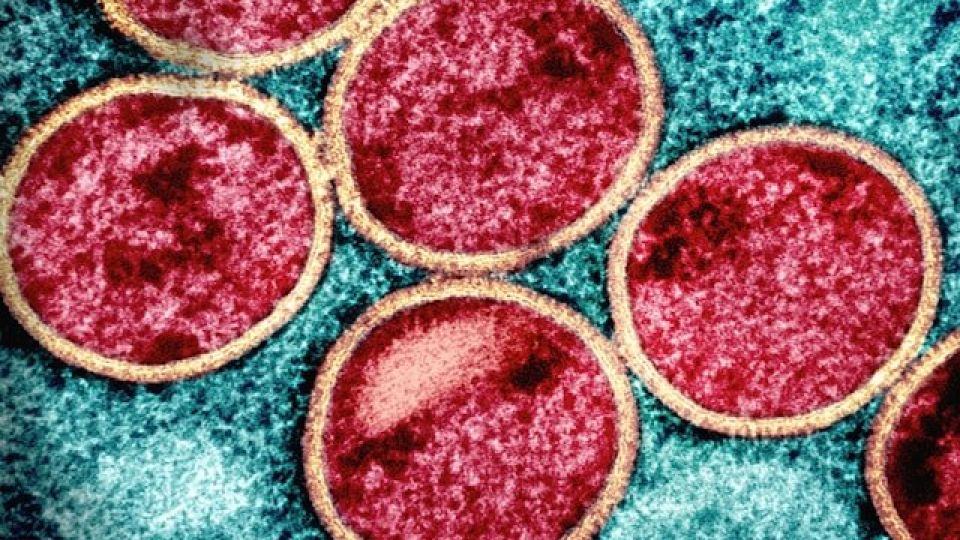December 24, 2024
KATHMANDU – With the confirmation of the second mpox case in Nepal, the Ministry of Health and Population has stepped up surveillance measures to prevent a possible outbreak of the deadly viral disease.
Nepal reported the latest case on Friday. A 36-year-old man from Tanahun, who returned from Saudi Arabia on Thursday, tested positive for the disease.
Nepal confirmed its first case of mpox infection in June last year, when a 60-year-old foreign national had tested positive.
“We have increased health screenings of passengers entering the country from abroad, as per the instruction of the Ministry of Health and Population,” said Kanchhi Maya Twanju, a health worker deployed at the health desk set up at the Tribhuvan International Airport. “We have been instructed to send passengers having fever and those showing symptoms of mpox infection directly to hospitals.”
Mpox is a rare disease caused by infection with the mpox virus and one in 10 infected persons can die. Most common in remote parts of central and west Africa, the disease has now been reported in at least 122 countries. Beyond Africa, monkeypox is spreading chiefly in men who have sex with men, putting sexual health clinics on alert for new cases.
Along with stepping up screening of the passengers entering the country via TIA, health authorities have requested dermatologists throughout the country to refer suspected cases for testing.
“We have alerted dermatologists about the risk of an outbreak of mpox virus in the country and have requested them to refer suspected cases for testing,” said Dr Yadu Chandra Ghimire, director of the Epidemiology and Disease Control Division. “We will take additional measures following consultations with stakeholders, including the World Health Organisation’s Nepal representatives.”
Public health experts in Nepal say that screening suspects at health desks at international airports and land crossings is not sufficient to prevent outbreaks since it usually takes between five and 21 days for the first symptoms of mpox to appear, and not all cases of infection can be detected at health desks.
Monkeypox cases have been reported in neighbouring India, with which Nepal shares a long, porous border. India has recorded at least 30 mpox infections since 2022.
Health experts say that even if the rare viral infection is usually mild and most people recover within weeks, the risks should not be underestimated. They stress precautions, saying that every disease seen in any corner of the world can come to Nepal due to the high mobility of people.
“We didn’t expect that the infected person would come from Saudi Arabia, as there is no outbreak currently,” said Dr Sher Bahadur Pun, chief of the Clinical Research Unit at Sukraraj Tropical and Infectious Disease Hospital. “This incident shows that the deadly disease may come from any country, and we must remain vigilant and prepare agencies concerned accordingly.”
Doctors say preventing an outbreak of the deadly viral disease is not the sole responsibility of a single health agency, and it is impossible to do so.
“Every agency and person, including passengers, should shoulder the responsibility and take preventive measures,” Pun stated.
Mpox has been a globally neglected public health problem in parts of Africa for decades. The disease came to widespread attention after May 2022, with countries outside Africa reporting new cases.
Mpox has since spread globally. More than 100,000 people from 122 countries have already tested positive for the disease.
Its symptoms include fever, headache, swelling, body pains, exhaustion, and itchy rashes on the face, hands, and feet.
As the disease primarily spreads through close person-to-person contact, public health experts recommend self-isolation and good hygiene to avoid it.
Meanwhile, health officials informed that the condition of the infected man is normal and he will remain in hospital isolation for an additional two weeks.
They said that they are also working to trace close contacts between the patients on the plane and the taxi driver who took him to the hospital.


